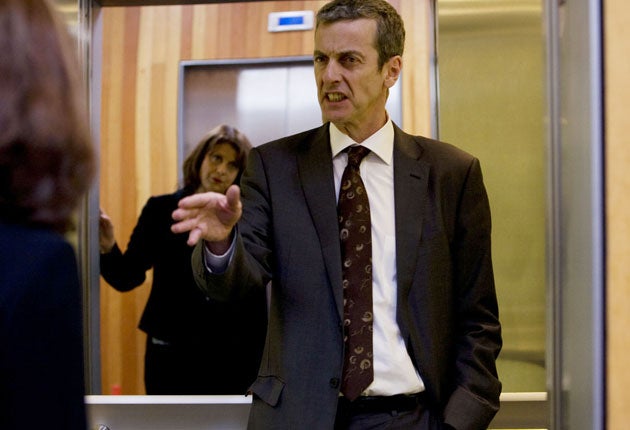Swearing: When a curse can be a blessing
There's nothing like a spot of precision swearing on TV. It may not be big, says Fiona Sturges, but it can be clever

I love a bit of swearing. I'm sorry but I do. I know what you're going to say. It's not big and it's not clever. It's silly and immature, a debasing of the English language and a sign of a stunted imagination. But when used artfully and with restraint I truly believe that swearing can be a beautiful thing.
Clearly I'm not the only one who thinks so. A recent survey by the media regulator Ofcom concluded that British viewers are increasingly tolerant of strong language on television and radio and that we are not the po-faced, squeamish, morally uptight citizens that are often portrayed in the media.
Of course, expletives have their place and there are plenty of programmes – anything featuring Gordon Ramsay for instance – where swearing is nothing more than filler, a heavy-handed smokescreen to mask the absence of any real drama. And let's just ignore Big Brother, where the indiscriminate spouting of four-letter words is invariably the default setting of intellectually challenged attention-seekers.
There are times, however, when swearing can be as valid and creative a use of language as the florid adjectives employed by some of our greatest poets.
Introduced sparingly and judiciously, swear words can be visceral and hard-hitting. Used in abundance they can conjure baroque mental pictures, some camp, others disturbingly grand guignol. If you need proof, just look at The Thick of It, in particular the verbal grenades lobbed by Malcolm Tucker, the lethal Scottish enforcer of the PM's wishes and undisputed master of the profane put-down. Or Deadwood, the American series that contains some of the most beautifully composed abuse television has ever known. Or Curb Your Enthusiasm where, in one scene, guests at a restaurant deliver a stream-of-consciousness tirade of expletives out of sympathy for the Tourettes-afflicted chef.
To appreciate the power of the single expletive I should refer you to The Wire and the episode in which detectives Bunk and McNulty examine a crime scene, only breaking their silence with their use of the f-word 38 times. Naturally the scriptwriters could have used more wordy dialogue to relay the sense of bafflement, then realisation, then astonishment felt by the pair as they trace the course of a bullet from outside an apartment window, into a victim's head and then into the door of a fridge. But clearly that wouldn't have been so effective.
There are times when swearing can do wonders for the credibility of contemporary drama. I've always thought that EastEnders might benefit from the odd profane outburst for a dash of realism. Certainly, the resident heavy and sometime wife-beater Phil Mitchell would be a lot more believable were he allowed to indulge in some proper cursing. And how about 24's recently retired Jack Bauer, a man on whose shoulders the future of millions of Americans would frequently rest, and who on more than one occasion found himself strung up, beaten and with electrodes applied to his person, and yet was compelled to utter nothing more than a feeble "Damn it!"
You could argue, with the introduction of the watershed, and the broader cultural omnipresence of four-letter words, that swearing has lost its frisson. Gone are the days when the likes of Bill Grundy were suspended over a few ripe words used by the Sex Pistols, or when Kenneth Tynan could shock the nation with a passing obscenity on a BBC discussion programme. But times have changed and so has the way we use language. Of course swearing can be offensive, ill-judged and rude, but in dramatic terms it can also be highly expressive, clever and, well, just funny. Frankly I'd like to hear more of it.
Join our commenting forum
Join thought-provoking conversations, follow other Independent readers and see their replies
Comments
Bookmark popover
Removed from bookmarks